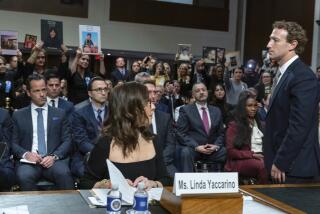Turkey extends censorship rules to streaming services. Critics say political dissent is the real target

ISTANBUL, Turkey — A brief kiss by two female characters in the animated series “Tales of Arcadia,” a moment that did not generate major criticism from viewers worldwide, became a scandal in Turkey.
Major news outlets like the pro-government Sabah called the July availability of the program on the Netflix streaming service an attempt by what it called a global LGBTQ lobby to promote homosexuality among Turkish children.
And by early August, Turkish authorities had announced that Netflix and other online content providers would be subject to the same censorship rules that exist for broadcast television. Nudity, alcohol consumption, smoking, drug use, gory violence and any other depiction of behavior found to be “against moral values” would not make it past censors, even if the content was viewed through subscription services.
“Regulating these outlets is the least the government can do as part of a larger struggle to save our children and our culture,” said Yildirim Gencer, who heads the Turkey Youth Union, which held protests calling for censorship of shows like “Tales of Arcadia.”
Though presented as a way of policing explicit content, the new rules, which will be enforced starting in September, have raised concerns for freedom-of-speech advocates. They worry the government of authoritarian President Recep Tayyip Erdogan aims to control an online media landscape that provides space for political criticism no longer seen on traditional media.
Similar concerns have arisen in such places as China, Myanmar and India, where authorities have been known to shut down or disrupt internet service in times of instability rather than allow the flow of information that often includes criticism of the government.
In Turkey, the censorship authority known as the Radio and Television Supreme Council, or RTUK, decides what the people can see with an eye toward national values, which means different things to different people. The vast majority of the country’s 80 million people identify as Sunni Muslim, but follow a wide spectrum of daily practice.
The censorship is part of a larger effort by the ruling Justice and Development Party, or AKP, to promote a particular notion of the ideal Sunni Muslim citizen, said Lisel Hintz, assistant professor of international relations at Johns Hopkins University.
“Their language of morality is a specific understanding on what it means to be Turkish, and not all Turkish citizens are pious Muslims, or Sunnis, or even Muslims at all,” she said, “and for them, seeing alcohol, tobacco and nudity banned is ridiculous.”
In response, a booming online media industry has emerged in Turkey, where dramas and independent news are able to tackle subjects too risky for television.
BluTV, which has more than 4 million registered users according to the company, features shows like “Behzat C,” a gritty cop drama set in Ankara, the Turkish capital, where the lead character is a foul-mouthed, chain-smoking alcoholic who investigates cases inspired by Turkish contemporary politics. Under the new censorship rules, most of what he does would be censored. BluTV and other online content providers will have to apply for a license in September, then be subject to the censorship regulations.
So would other shows. A common sight on Turkish television involves a smoker having his or her face blurred, or a cigarette being replaced with a flower inexplicably producing a stream of smoke.
Netflix, which entered the Turkish market in 2016, said that the kiss in “Tales of Arcadia” did not draw major criticism from the company’s 150 million subscribers in 190 countries, but that the company was following developments.
“Netflix has a loyal and growing fan base in Turkey, which values the diversity of content on our service. We continue to invest heavily in shows that are made in Turkey,” the company said in a statement.
Blurring out cigarettes or bleeping swear words are not the only issues for critics of the new regulations such as Faruk Bildirici, one of two opposition party representatives on the RTUK. While the details have yet to be worked out, the law also extends the RTUK’s mandate to online news media that airs content deemed to be detrimental to national security, or against national values.
Turkey already has legislation criminalizing “insulting” the president or the “Turkish nation,” or producing “propaganda for terror organizations.”
“This regulation was not required, and this type of supervision was completely unnecessary, since there existed the necessary measures to prevent them from breaking the law,” Bildirici said.
By the end of 2018, according to a report by the Istanbul-based Freedom of Expression Assn., more than 245,000 websites, including pornography, Wikipedia and scores of news outlets, were blocked by Turkish authorities.
“This is not a licensing regime but a new and additional control and censorship regime,” said Yaman Akdeniz, a law professor and cybersecurity expert at Istanbul Bilgi University.
Akdeniz said he expects the new regulations to make it easier to censor and block news outlets critical of the government altogether, including foreign news providers that provide content online, with little judicial oversight.
Traditional broadcast media in Turkey are largely controlled by business conglomerates with close ties to the AKP. Nine of the top 10 most read daily newspapers, along with 9 of the top 10 most watched television news channels, belong to owners with close ties to the ruling party, according to Reporters Without Borders.
As a result, said Hintz, the firms that own Turkey’s largest media outlets “have no financial nor political interest in broadcasting content to which the AKP objects.”
Farooq is a special correspondent.
More to Read
Sign up for Essential California
The most important California stories and recommendations in your inbox every morning.
You may occasionally receive promotional content from the Los Angeles Times.










